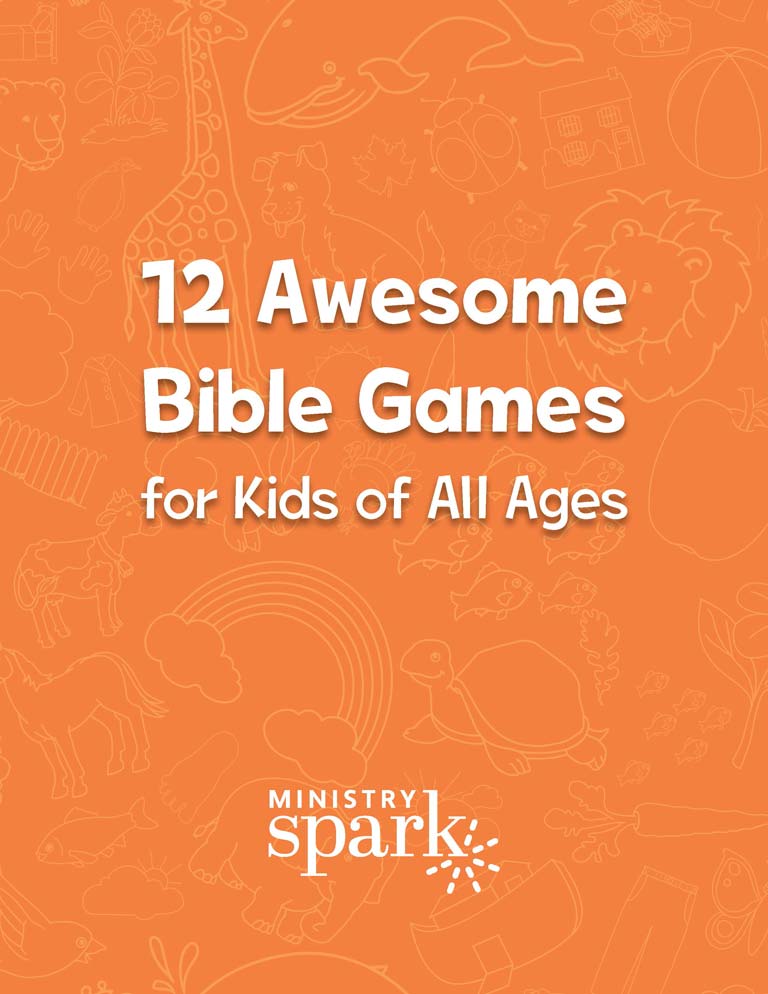When I close my eyes, I can remember it like yesterday: their faces twisting into grim expressions, jaws dropping in shock, their energetic participation just moments ago tapering off to a standoffish cringe. The latest song-dance trend was playing at the end of winter retreat dance party.
My practiced dance moves were on full display to impress my small group of girls and show them how cool I am. And sometimes awkward dance moves speak louder than words.
My efforts yielded results. Just not the results I was banking on. Needless to say—my clownish-yet-well-meaning attempt to demonstrate relevancy fell quite flat. Unfortunately, any “cool points” of relational equity I *thought* I scored were eroding by the second.
Relevancy in KidMin: How Do I Relate to Kids?!
Irrelevancy is an easy territory to wade into—especially when interacting with people younger than yourself. Whether testing out linguistic, fashion, or dance trends to gain rapport with kids, social relatability isn’t as key to reaching and ministering to kids as one might think!
Don’t get me wrong, being silly and encouraging community through having fun is one thing. But if I had based my spiritual strategy for connecting with these girls on understanding and mimicking their trends, it could ultimately taint the timeless message of hope that I want to communicate.
Within ministry, it’s unfortunately quite easy to forget to “keep the main thing, the main thing.” In this case, the main thing is always teaching and demonstrating the life-changing truth of the Gospel.
The main thing is always about Jesus. It is never about glorifying and elevating the self and then slapping a “Jesus approves this message” sticker on.
The same thing can happen in reverse too. Acting wildly surprised when a third grader doesn’t know what a VHS tape is or using phrases that echo the sentiment of: “kids these days have it easy, don’t play outside, are so … *insert demeaning adjective of choice*”.
The main thing is always teaching and demonstrating the life-changing truth of the Gospel.
Phrases that stir up age-based shame are not conducive for building relationships—especially gospel-ministering oriented relationships.

Our Words Matter
The Bible speaks constantly—especially throughout the book of Proverbs—to how the words we use are incredibly important.
- Proverbs 15:4: “The soothing tongue is a tree of life, but a perverse tongue crushes the spirit.” (NIV)
- Proverbs 16:24: “Gracious words are a honeycomb sweet to the soul and healing to the bones.” (NIV)
- Proverbs 12:18: “The words of the reckless pierce like swords, but the tongue of the wise brings healing.” (NIV)
The value of our language, especially as we relate to the children within our ministries, is incredibly important to God.
On the topic of language … just a few months ago, I was attempting to correctly utilize a term relentlessly used by a small group of girls: “rizz” (basically meaning charisma). This was during small group to relate to the Bible lesson. And while these kids were using the phrase themselves, as soon as that syllable passed my lips, I had everyone’s attention—just in a having-to-spend-the-rest-of-small-group-reeling-everyone-back-in type of way.
The language I used with the intention of engaging the girls in a hip way actually distracted them from the truth at hand.
Relevancy in KidMin: What Do Kids Need?
Respect and relationship go a long way in developing connections with youth. Relevancy begins with genuine, caring connection. Not a perception painted with a wide brush, chalking them up to “kids these days” but elevating them to a higher calling.
A calling to be known, seen, and cherished. Your relevancy in kidmin isn’t just about knowing the latest things or acting like the kids you teach.
A helpful tip is to focus on learning the child in front of you, engaging them about their interests while demonstrating that you are learning from them shows genuine care. Whether it’s Minecraft, chess, or their favorite music artist, taking the time to engage with them about what captures their interest builds trust and relational equity.
Exercising curiosity about who they are and engaging them in whatever stage of life they are in lends opportunity to introduce them to the love of Christ.
Above all, kids don’t need cool, hip, or trendy. Kids need safe. They need reliability, consistency, and to experience the real fruit of the Holy Spirit in their life through you! When kids feel known and respected by you, they will be much more open to what you have to say, what the church has to say, and even what God has to say.
Kids need to be believed in, not pandered to. They are smarter and stronger and more spiritual than is often accredited to them. Kids need the truth of the gospel, to know and believe that God thinks that they are to die for. Each child needs to see faithful, adult believers being who God made them to be.
Declare repeatedly over the children entrusted to your care that they are created in the image of God and have the grand opportunity to know and love Him forever! This is what kids need.

12 Awesome Bible Games for Kids of All Ages

12 Awesome Bible Games for Kids of All Ages

12 Awesome Bible Games for Kids of All Ages

The Eternal Relevance of the Good News of the Gospel Is for Everyone
Sharing the gospel with kids of any age does not need to be dressed up in trendy language to make it appear more relatable or attractive. It’s important to focus on explaining the truth that Jesus gives in an age-appropriate way, teaching the Biblical meaning of words they might seldom hear outside of church, like, “faith” “sin” “worship” and “salvation”.
Above all, kids don’t need cool, hip, or trendy. Kids need safe. They need need reliability, consistency, and to experience the real fruit of the Holy Spirit in their life through you!
Most six-year-olds might not know what the word faith means, but they have it and can place their faith in Christ.
When it comes to relevancy in kidmin, lean into your ministry. Take note of what the kids are talking about, what the families are participating in together, and even what the parents are mentioning about how their kids are spending their time. It is valuable to have a pulse on what is captivating the time and interest of the members of your congregation.
Whether you can identify characters from Bluey, show up to a baseball game, or potentially address a harmful trend, having a listening ear and an attentive disposition will aide you in best ministering to your kids’ ministry.
Relevancy in KidMin Means Being More “You” Than You Think
Above all, remember that God placed you within your ministry, within all the particularities of the context and place in history, to reach His people in His name. He sees you—everything that makes you who you are—and has invited you to partner with Him in His work.
You do not need to strive to be someone you are not; you can rest in the knowledge that God goes before and behind you.
Rest in knowing that the gospel is sufficient and does not need embellishments because it is already incredibly relevant and relatable.
Rest in knowing that the Holy Spirit is working in incredible ways despite your shortcomings and through your strengths. Fellow believer, rest in knowing that Jesus absolutely adores you!







